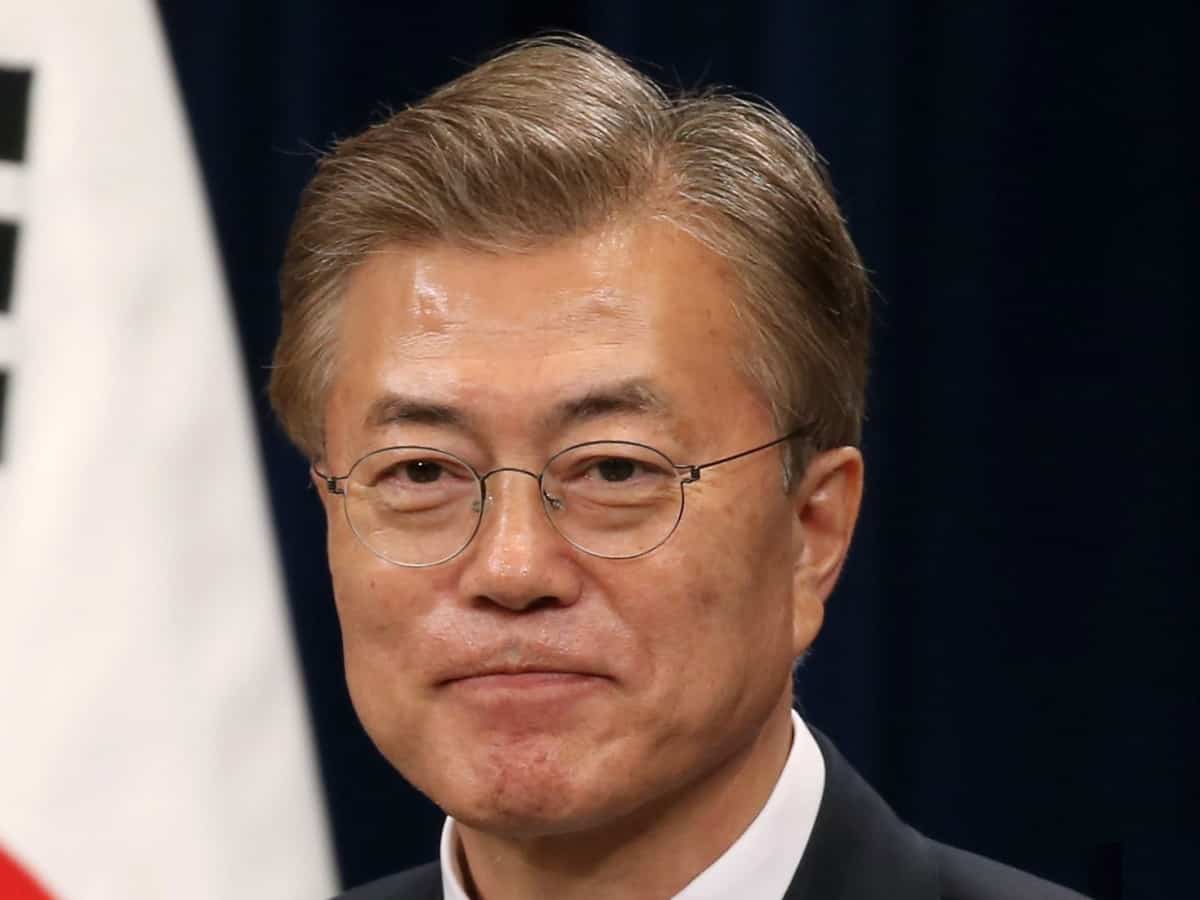Seoul: The coronavirus outbreak in South Korea, which has infected 8,162 people and killed 75 as of Sunday, has rattled the country’s political scenario ahead of the April 15 parliamentary elections, changing the way candidates campaign and shifting the overall focus to how the government has handled the pandemic.
Experts have said that the outcome of the elections was widely expected to depend on the government’s response to the outbreak as the current assessment was sharply divided between supporters of the ruling Democratic Party and opposition parties, the Seoul-based Yonhap News Agency reported.
The outbreak in the country, which was first reported on January 20, has not only halted conventional election campaigning but also taken away voters’ interests from political parties’ election pledges and candidates, the Yonhap report said.
As the government calls for the “social distancing” drive to stem the spread of the virus, the familiar scenes of election campaigning — meeting voters, shaking hands and public speeches — are no longer being seen in South Korean politics.
Abandoning face-to-face contacts with voters, preliminary candidates for the elections are focusing on online electioneering and doing coronavirus-related volunteer work.
Two high-profile politicians who will contest in Jongno in central Seoul, a symbolic constituency in Korean politics, are no exception.
Former Prime Minister Lee Nak-yon of the ruling Democratic Party (DP) and Hwang Kyo-ahn, chief of the main opposition United Future Party (UFP), have sprayed antiseptic in Jongno as volunteer work in recent weeks.
Ahn Cheol-soo, chief of a minor party, travelled to the hardest-hit southeastern city of Daegu earlier this month to do medical volunteer work for 15 days. Ahn has a medical doctor’s license.
Meanwhile, the DP has appealed for voters to lend support to the government’s drive to fight the coronavirus and minimize the economic impact of the pandemic, said the Yonhap News Agency .
“The early overcoming of the COVID-19 situation and emergency responses to the economic crisis are the way to stage election campaigning and tide over the national difficulty,” DP chairman Lee Hae-chan said at a party meeting Saturday.
The party has called for increasing an extra budget worth 11.7 trillion won ($9) by another 6 trillion won.
The main opposition UFP, meanwhile, highlighted what it called the government’s failure to contain the coronavirus at the early stage of the outbreak, the report said.
The conservative party has condemned the government’s reluctance to impose an entry ban on Chinese and the bungled supply of face masks to the public.
In a recent survey on 1,001 people by Gallup Korea, 43 per cent of the respondents said they want the ruling party to be victorious in the election. Those who think more opposition candidates should be elected also accounted for 43 per cent.
Political analysts said the outbreak was likely to dent the voting rate as voters may refrain from visiting polling stations on infection concerns.
The voter turnout for the 2016 parliamentary elections was 58 per cent.

